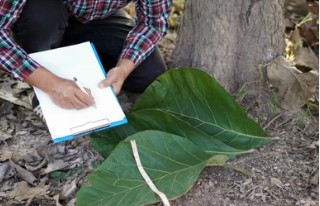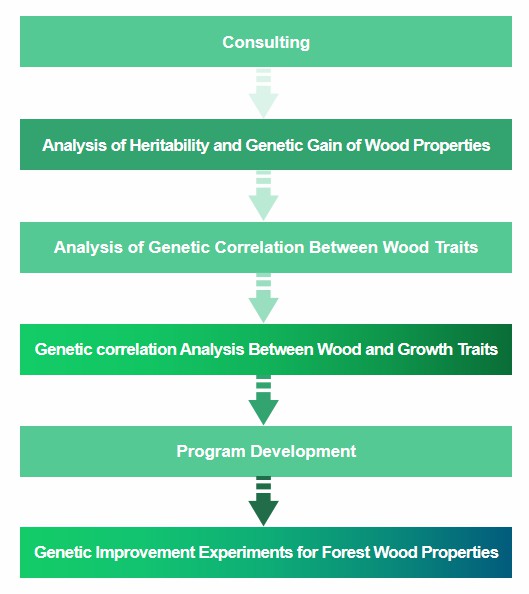Wood is the main product of forestry and plays a significant role in supporting human life. Depending on the characteristics of wood, people use it in different ways, for example, as fuel or as a material for building houses, making tools, weapons, furniture, packaging, crafts, and even paper. Wood is a natural organic composite material consisting of a matrix with cellulose fibers (high tensile strength) and lignin (high compression resistance). Generally, wood is defined as the xylem of the secondary growth of the stem.
Research on genetic improvement of forest wood properties has gained more and more attention as human demand for wood increases and its quality improves. The introduction of genotypes that increase wood properties in plantation forests allows these improved trees to obtain wood properties such as faster growth rate, higher quality wood density, cellulose content, fiber length, and fiber thickness. Conventional tree breeding techniques and genetic engineering breeding techniques are effective biotechnologies for genetic improvement.
Lifeasible, a best-in-class biotechnology company in plant research, is focused on providing one-stop, customized forest wood genetic improvement solutions and optimized protocols to customers worldwide.

In the service of genetic improvement of forest wood properties, we will conduct research and development of critical technologies such as conservation and evaluation of tree germplasm resources, construction of core breeding population, mining of breeding value of backbone parents, early selection and evaluation of excellent germplasm, molecular design and directed polymerization breeding, and large-scale propagation to improve specific wood properties of forest trees. The main biotechnologies we apply in genetic improvement research are cell engineering, genetic engineering, and molecular genetic markers. Regardless of which biotechnology is used, the following analysis is essential.
Selection of wood density (basic density, dry air density) and growth rate are the minimum requirements to produce high-quality wood. Our forest wood property genetic improvement services can meet all of your wood property improvement needs, including but not limited to the following wood properties
Our forest wood genetic improvement services cover a wide range of tree species, including but not limited to the following species.

At Lifeasible, our geneticists and plant breeding experts will collaborate and work together to provide you with a one-stop shop for genetic improvement of forest wood properties. We are always happy to introduce you to our featured technologies, service plans, collaboration options, and more. Please feel free to contact us for questions, inquiries, or collaboration.
Reference